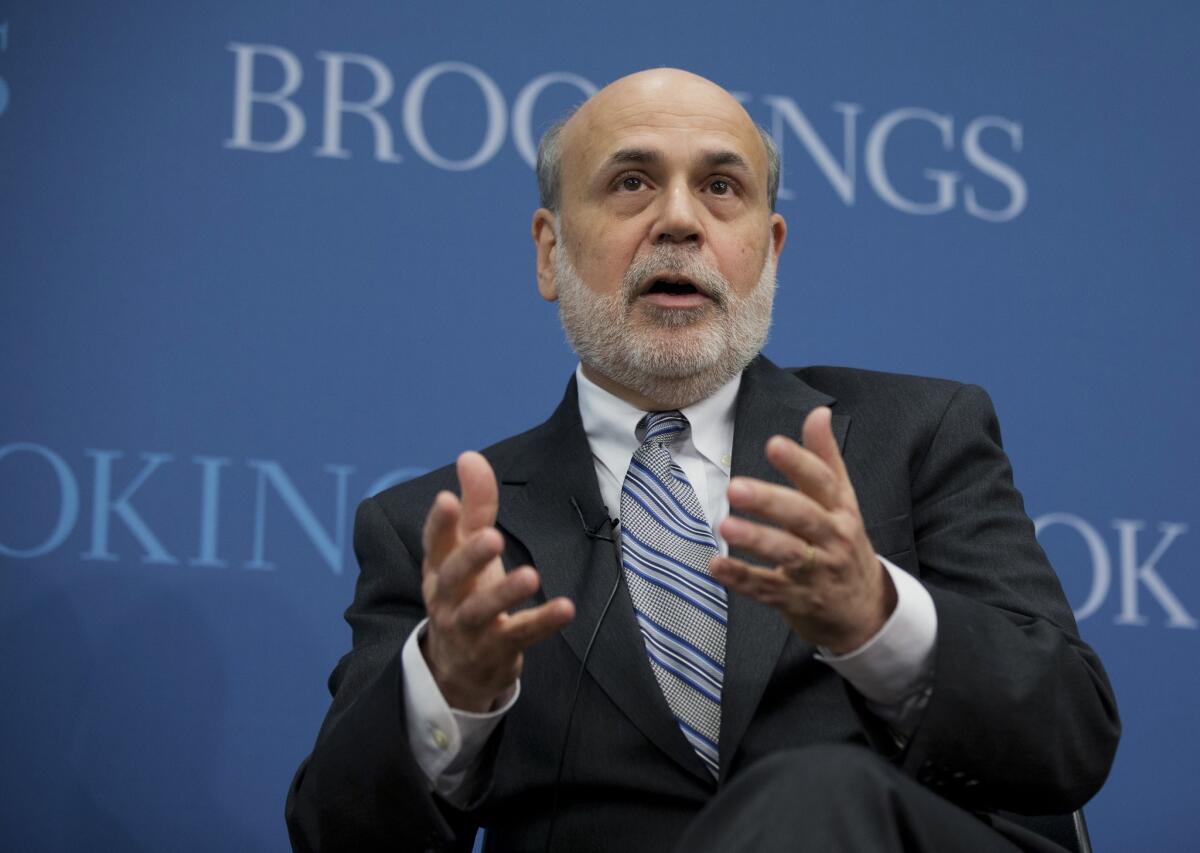Bernanke to write book about Fed’s handling of Great Recession

Former Federal Reserve Chairman Ben S. Bernanke speaks at the Brookings Institution in Washington in January.
Former Federal Reserve Chairman Ben S. Bernanke first gained prominence writing about the Great Depression. Now he plans a memoir to defend how he and other officials battled the biggest crisis and economic downturn since then.
“I’d like to be able to explain that it was the right thing to do and to attest to my loyalty to the United States,” Bernanke said with a laugh in an interview with the Associated Press on Monday.
Bernanke has been sharply criticized for the unprecedented actions the central bank took in response to the 2008 financial crisis and the Great Recession.
He told the AP that the “political environment was pretty hostile at times” during his tenure, such as when Texas Gov. Rick Perry called him a traitor during the 2012 Republican presidential primaries.
Bernanke stepped down Feb. 2 after eight tumultuous years leading the Fed and now is a distinguished fellow in residence at the Brookings Institution think tank in Washington, D.C.
The extent of that tumult became clearer Friday when the central bank released transcripts from all the 2008 meetings of the policymaking Federal Open Market Committee.
“I want people to understand what we knew, when we knew it, how we made decisions and how we dealt with the enormous economic uncertainty,” Bernanke told the AP.
Bernanke said he has been organizing his thoughts and plans to start meeting with publishers in the next several weeks. The book, which he said would take about a year to write, will cover his career at the Fed.
He spent nearly three years on the Board of Governors from 2002 to 2005. Former President George W. Bush then nominated him to be Fed chairman.
Bernanke took the reins of the central bank from Alan Greenspan in 2006. President Obama renominated Bernanke to a second four-year term as chairman that began in 2010.
More to Read
Inside the business of entertainment
The Wide Shot brings you news, analysis and insights on everything from streaming wars to production — and what it all means for the future.
You may occasionally receive promotional content from the Los Angeles Times.











